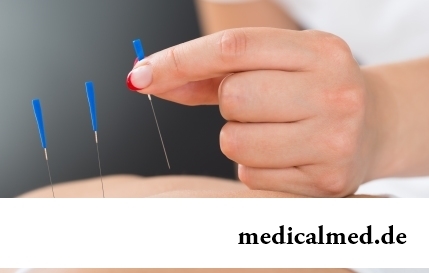





Disulfiramum
Application instruction:
Disulfiramum – the drug used at treatment of alcoholism.
Form of release and structure
Disulfiramum is released in the form of tablets for implantation (on 10 pieces in glass bottles, on 1 bottle in a cardboard pack).
Is a part of 1 tablet:
- Active agent: Disulfiramum – 100 mg;
- Auxiliary components: Mannitolum, sodium chloride, polyethyleneglycol 6000.
Indications to use
Disulfiramum is appointed at treatment of alcohol addiction for the cooperating and elected patients as supportive application.
Contraindications
- Alcohol intoxication, the use of drinks with the content of alcohol in 12 hours prior to holding a procedure;
- Mental disturbances, psychoses (without the postponed earlier acute alcoholic psychoses), attempts of suicide in the anamnesis;
- The established arterial hypertension, coronary heart disease, heart failure, earlier postponed insufficiency of peripheric circulation;
- Lactation period;
- Hypersensitivity to drug components, and also to thiocarboaminates.
It is not necessary to appoint Disulfiramum without the conscious consent of the patient.
Use of drug in the first trimester of pregnancy is not recommended. At purpose of Disulfiramum pregnant women need to correlate advantage of therapy to possible risk. At the same time it is necessary to consider the available data on developing of inborn malformations at babies whose mothers used drug in combination with other medicines.
Route of administration and dosage
Tablets for implantation have to be sterile, without impurity and damages, to be stored in original packaging.
Implantation is carried out after careful disinfection and a local anesthesia, doing a small cut (about 6 mm) in the left ileal area. The place of a section has to be located rather low not to allow friction by a belt. Hypodermic cellulose is moved apart and by means of a trocar subcutaneously (podfastsialno) enter 2 tablets of Disulfiramum (on 100 mg) on depth of 4 cm. It is necessary to repeat the procedure 4 times, placing tablets around the place of a cut zvezdoobrazno, parallel to the surface of skin.
The general dose – 8-10 tablets (800-1000 mg). On a cut the stitch with the subsequent sterile bandage is put. It is possible to repeat the procedure 8-9 months later.
If tablets were implanted too close to the place of a section, emergence of a phenomenon of rejection is possible. Because of friction of the place of implantation by a belt or premature removal of seams suppuration can develop.
Side effects
Disulfiramum can lead to development of such side effects (caused by properties of active agent) as: drowsiness, vomiting, nausea, taste of garlic or metal smack in a mouth, an unpleasant smell at patients with kolostomy, injury of hepatocytes, exceptional cases of hepatitis (similar disturbances are sometimes observed at the patients with nickel eczema who do not have alcoholism), an optic neuritis, a polyneuritis of the lower extremities, confusion of consciousness, memory loss, an adynamy, the passing impotence, a headache, allergic dermatitis, fatigue. In rare instances development of psychotic reactions, including schizophrenia, a mania, paranoid and depressions can be noted.
Because of a combination Disulfiramum - alcohol there can be following disturbances: respiratory insufficiency, a cardiovascular collapse, disturbances of a heart rhythm, stenocardia, sometimes – a myocardial infarction, and also neurologic frustration, consciousness oppression, up to a coma, wet brain. At alcohol intake in number of more than 50-80 ml of 40% of ethanol development of heavy disturbances of respiratory and cardiovascular systems, hypostases, spasms is possible. In these cases it is necessary to carry out disintoxication and symptomatic therapy with the accompanying introduction of analeptics.
Special instructions
Before implantation it is necessary to conduct a course of a gradual excommunication of the patient from alcohol.
At therapy of Disulfiramum it is strictly forbidden to take alcoholic beverages as it can lead to development of life-threatening symptoms. In this regard drug can be used only with the consent of the patient and provided that he is informed on the existing dangers connected with alcohol intake at use of Disulfiramum. It is possible to appoint drug after very detailed anamnesis and assessment of all shortcomings and advantages of such treatment of alcoholism.
Signs of intolerance of alcohol can also develop after use of liquids with the content of alcohol (for example, the cough syrups, sauces, liquids for rinsing of a mouth, vinegar warming means, aftershave lotions and other alcohol-containing cosmetics).
Disulfiramum should be applied with care the patient with a liver or renal failure, diseases of cardiovascular or respiratory systems, epilepsy, a diabetes mellitus. Disulfiramovy reaction can lead to deepening of these diseases.
The polyneuropathy which can develop in therapy time passes at purpose of vitamins of group B or removal of the implanted tablets. In the place of implantation the small hillock which is caused by fibrosis of a hypodermic and fatty tissue of skin can be formed. At co-administration with peroral anticoagulants it is necessary to exercise more frequent control of maintenance of a prothrombin in blood and correction of doses of anticoagulants that is connected with high probability of developing of bleeding.
Medicinal interaction
At simultaneous use of Disulfiramum with some medicines there can be following effects:
- Antitrombotichesky drugs, antipyrine, Phenytoinum, chlordiazepoxide and diazepam: strengthening of their action;
- Peptidin, morphine, amphetamine: strengthening of their action (data are obtained when carrying out experiments on animals);
- Amitriptyline, Chlorpromazinum: strengthening of symptoms of disulfiramovy reaction;
- Diazepam: weakening of symptoms of disulfiramovy reaction;
- Rifampicin: braking of oxidation reaction and allocation by his kidneys;
- Isoniazid: influence on functioning of the central nervous system, development of dizziness, lacks of coordination of movements, irritability, sleeplessness;
- Metronidazole: development of a disorientation and psychotic states (combined use is not recommended);
- Organic solvents with the content of alcohol, acetic aldehyde or paraldehyde: development of disulfiramovy reaction;
- Alfentanil: increase in time of its action.
Terms and storage conditions
To store in protected from light, the place, dry, unavailable to children, at a temperature up to 25 °C.
Period of validity – 4 years.
There are very curious medical syndromes, for example, persuasive swallowing objects. In a stomach of one patient suffering from this mania 2500 foreign objects were revealed.

When overcomes feeling of hunger, and an opportunity to have dinner fully is absent, having a snack − small on volume comes to the rescue...
Section: Articles about health
The depression not without reason is considered one their main troubles of our century: for scientific and technical progress, acceleration of rate of life and a surplus of information of people it is forced to pay with stresses, negative emotions and weakening of protective forces of an organism. As a result ш...
Section: Articles about health
Color of plants is caused by presence at them of certain chemical compounds. Let's talk about what is meant by various colors of vegetables and fruit and what properties they give them....
Section: Articles about health
Feeding by a breast - the integral part of ideal motherhood allowing to come into contact with the kid and to create since early years...
Section: Articles about health
The summer of this year in Russia was very ambiguous. Regions suffered from a merciless heat, from pouring rains, the hail from time to time dropped out, then there was again a heat which alternated with rainfall again. Many people suffer from such sharp changes of weather...
Section: Articles about health
Kidneys perform the most important function of clarification of blood from those products of metabolic processes which cannot be used by an organism for obtaining energy and construction of new cells. With the urine produced by kidneys from a body of the person the bulk of the toxins getting to it with food and water is removed. Normal functioning of kidneys provides removal from an organism of excess liquid and maintenance of optimum ionic balance. At emergence of failures in work of secretory system...
Section: Articles about health
Neurosis is called pathology of a nervous system at which deviations in functioning of the highest nervous processes are observed. Nye...
Section: Articles about health
Osteoporosis this general disease which main sign is decrease in density of a bone tissue. On distribution width it takes the fourth place among noninfectious diseases. The illness develops at mature age more often: in our country to them harvest seasons...
Section: Articles about health
The technique of acupuncture (acupuncture) is used in the medical purposes more than three and a half millennia. It is eurysynusic and recognized as official medicine in the majority of the developed countries of the world. Influence by fine needles on so-called points of acupuncture contributes to normalization of a metabolism and hormonal background, activates protective forces of an organism, has anesthetic and antiinflammatory effect, stabilizes a condition of mentality....
Section: Articles about health
Tea is loved and use almost everything. This drink has tonic properties, contains the tannins capable podavlit...
Section: Articles about health
Many parents of children at the age of 2-4 years face excessively whimsical behavior of the child. The kid exhausts constant crying and whims not only the parents, but also himself. In what the reasons of children's whims. And how to fight with them?...
Section: Slideshow
Hemorrhoids – extremely widespread disease. Periodically arising inflammations and bleeding of hemorrhoidal nodes cause serious discomfort to nearly fifteen percent of adults. Meanwhile, having a clear idea of the reasons of an exacerbation of an illness and following rules of precaution, it is possible to reduce substantially sharpness of unpleasant feelings and to reduce progressing of a disease....
Section: Articles about health
It is difficult to revaluate importance of kidneys for an organism. These bodies not only perform work on purification of blood of decomposition products and выв...
Section: Articles about health
The pine is one of the most widespread plants of our woods. Its needles and pitch not without reason called by "gallipot" were since ancient times used for strengthening of protective forces of an organism, treatment of avitaminosis, anemia and many other diseases. In recent years wide п...
Section: Articles about health
Energy saving lamps are one of the most popular products of innovative technologies, and there is no wonder: they much more economic also are more long-lasting than usual filament lamps. At the same time there are fears that energy saving bulbs can become the reason of emergence of problems with health. Unfortunately, some of similar opinions have the real reasons....
Section: Articles about health
It seems, quite recently you brought the baby from maternity hospital, but time flew by, and here it is already going to join the first...
Section: Articles about health
All diseases from nerves – in this joke a big element of truth, are said by doctors. Constant stresses lead to decrease in protective forces of an organism, and it becomes vulnerable for a set of diseases. It is wrong to think that the stress is a problem of the present. Life of people and hundred...
Section: Articles about health
During foot walks blood moves on vessels more actively and one and all bodies are supplied with a large amount of oxygen. It affects the state of health of the person very positively....
Section: Slideshow
Urogenital candidiasis (milkwoman) – a fungal infection which annoys unpleasant feelings in the field of generative organs, сопр...
Section: Articles about health
The naturopathy sometimes moves as the new direction of medicine, something like fashionable hobby, and there is nothing farther from the truth. This most ancient direction, the word "naturopathy" is translated as "treatment by the nature", and, no doubt, treatment приро...
Section: Articles about health
Bees – really unique beings. Practically all products of their life activity are used by the person. Since the most ancient times medicinal properties of honey and other substances received in the course of beekeeping are known. The fact that all these products are recognized not only national, but also official medicine is especially significant. About influence and routes of administration of bee "drugs" the speech in this article will also go....
Section: Articles about health
The immunity role in growth of the child is invaluable. The proteins-immunoglobulins produced by immune system preserve the child against diseases...
Section: Articles about health
One of the useful properties presented to the person by the nature is ability to feel fear. This ability is designed to signal about approach of a dangerous situation and to help to avoid in advance it to keep life. However if the fear is persuasive and not about...
Section: Articles about health
EKO, or extracorporal fertilization - a method of treatment of infertility which became the reason of a set of broken-down copies in due time accused the people working on its creation neither more nor less of rivalry good luck. Already very few people deny the right of a method for existence, and to surprise nobody with "children from a test tube". And nevertheless, a certain magic in the procedure of artificial fertilization is, process of origin of new life is always a secret, and even it р now...
Section: Articles about health
The name of this disease precisely reflects the problem reason: it consists in the bra fastener pressure upon a certain zone...
Section: Articles about health
For most of the working people the problem of having a snack is particularly acute enough. Sooner or later there is a question: what can be eaten quickly between a breakfast and a lunch or a lunch and leaving from service so that to receive necessary power feed, but not an overload...
Section: Articles about health
Tick-borne encephalitis – one of the most dangerous viral diseases which causative agents transfer and is given to people by ixodic mites. These are the small blood-sicking insects living in the considerable territory of our country. The person bitten by a tick can catch also erlikhiozy, bartonnelezy, babeziozy, mycoplasmosis and Lyme's disease. As well as encephalitis, these illnesses affect the central nervous system, and as specific antiviral therapy does not exist, the forecast very to a neuta...
Section: Articles about health
